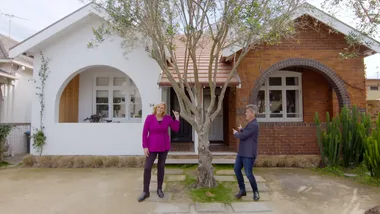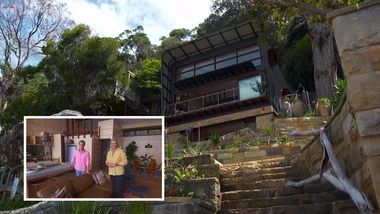If you’re considering selling your residential investment property, there are many things to consider before you go on the market. One of these is the delicate issue of selling your property when you have a tenant.
Of course, there’s the option to terminate the lease, but if the property presents well, you might consider offering it for sale with the tenant still in residence. A houseproud, happy tenant is an asset to you as an owner and can also be of great appeal to a potential buyer. A settled tenant removes the potential issue of trying to find a new tenant, and also ensures there is rent available to help pay the new owner’s mortgage from day one. With this in mind, it’s important to make the selling process as comfortable as possible for your tenant and do it by the book*.
Before you deliver the news
Before you notify your tenant, be absolutely sure you are going on the market. You don’t want to rock the boat if you’re unsure and risk losing a good tenant and your rental income.
If you officially notify the tenant of your intention to sell (and you didn’t inform them of this at the time the original lease was signed), your tenant is only required to give you 14 days’ notice to vacate and walk away from any obligation they may have, regardless of whether they are on a fixed term lease or not.

How to notify your tenant
The law also requires your tenant to be informed in writing with a Notice of Intention to Sell. Receiving a document such as this without forewarning could be intimidating, so it’s a courtesy to call them before this formal notice lands in their inbox or mail. A friendly phone call from your selling agent to your tenant to let them know is not only polite, it also gives the agent the opportunity to introduce themselves and go over the steps that lie ahead. Often the tenant will have questions that can be answered easily and quickly by the agent, either in person or over the phone.
Minimise inconvenience
Selling a property can be disruptive to a tenant’s life. There’s the extra tidying up and cleaning to ensure it presents well for inspections, and they will also need to be out of home while they take place. There’s also the question of gaining access for tradies for any maintenance work prior to going on the market, so it’s a good idea to offer your tenant some consideration for the inconvenience by reducing their rent for the period of the campaign.
A pre-arranged visit from the selling agent can also be a good opportunity to provide your tenant with some guidance as to the standard of presentation that can be expected for open homes. If your tenant is house proud and always has their home beautifully presented, consider offering them a dinner voucher to express your gratitude. Or, for the less tidy tenant, consider offering an incentive up front such as a gift card to encourage a pre-sale spring clean.

Making inspections work
Tenants are not required to provide access more than twice a week, and any impact on the peaceful enjoyment of their property should be kept to a minimum. Keeping the lines of communication open with your tenant in a supportive manner is important throughout the process, and this is where your agent can lend a helping hand.
“We always call the tenant to remind them of an upcoming open house and to remind them that neat and tidy presentation will help with the process of finding a new landlord, rather than an owner occupier,” says Lloyd Allen, principal of Better Homes and Gardens Real Estate in Crows Nest. “We always ask if there is anything we can do to help and if they have any questions or concerns.”
It’s worth having a chat to your agent before you notify your tenant about the best way to approach this important undertaking. A great result starts at the very beginning and careful consideration, planning and understanding of the process – and the needs of those involved – is a formula for a great result in a timely and cost-effective way.
*The above information reflects NSW laws and may vary from state to state.











